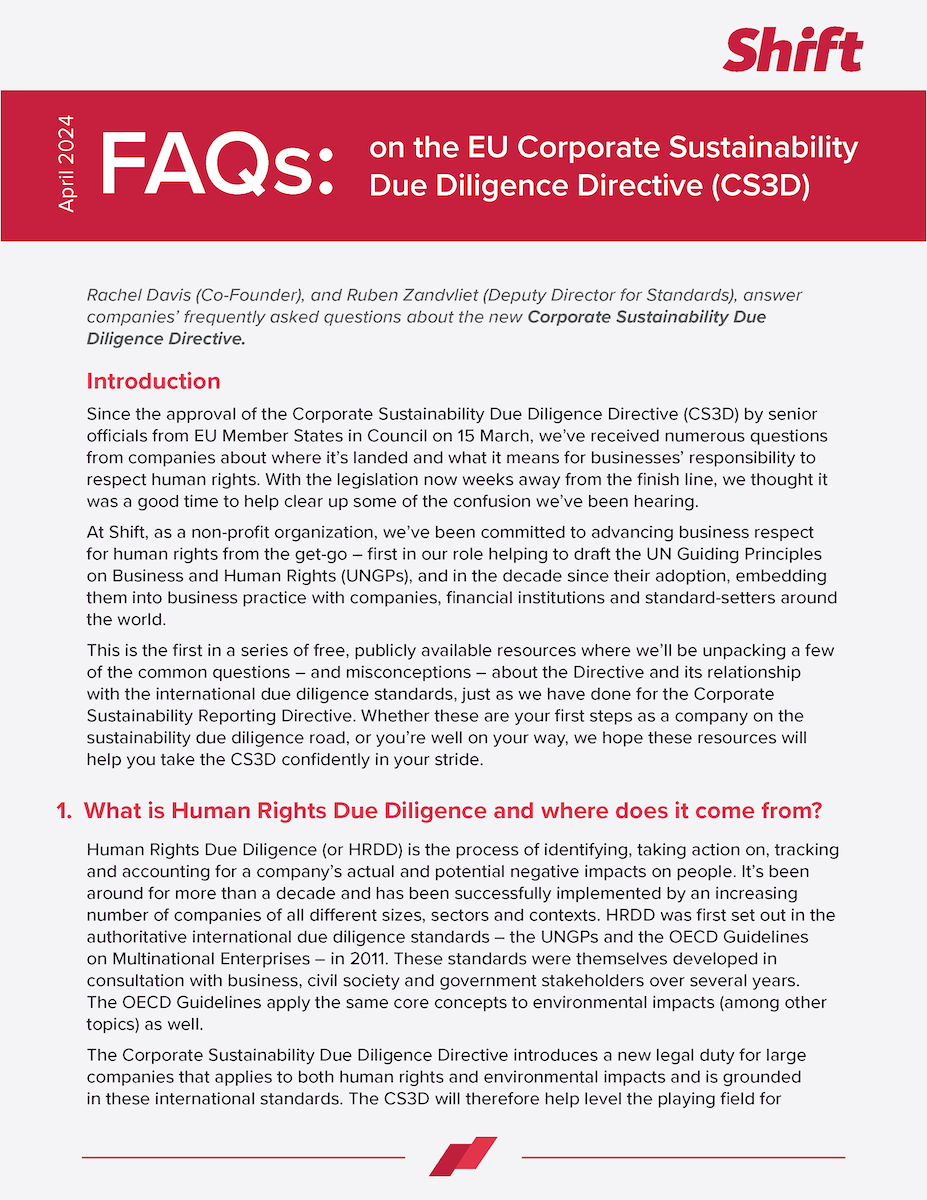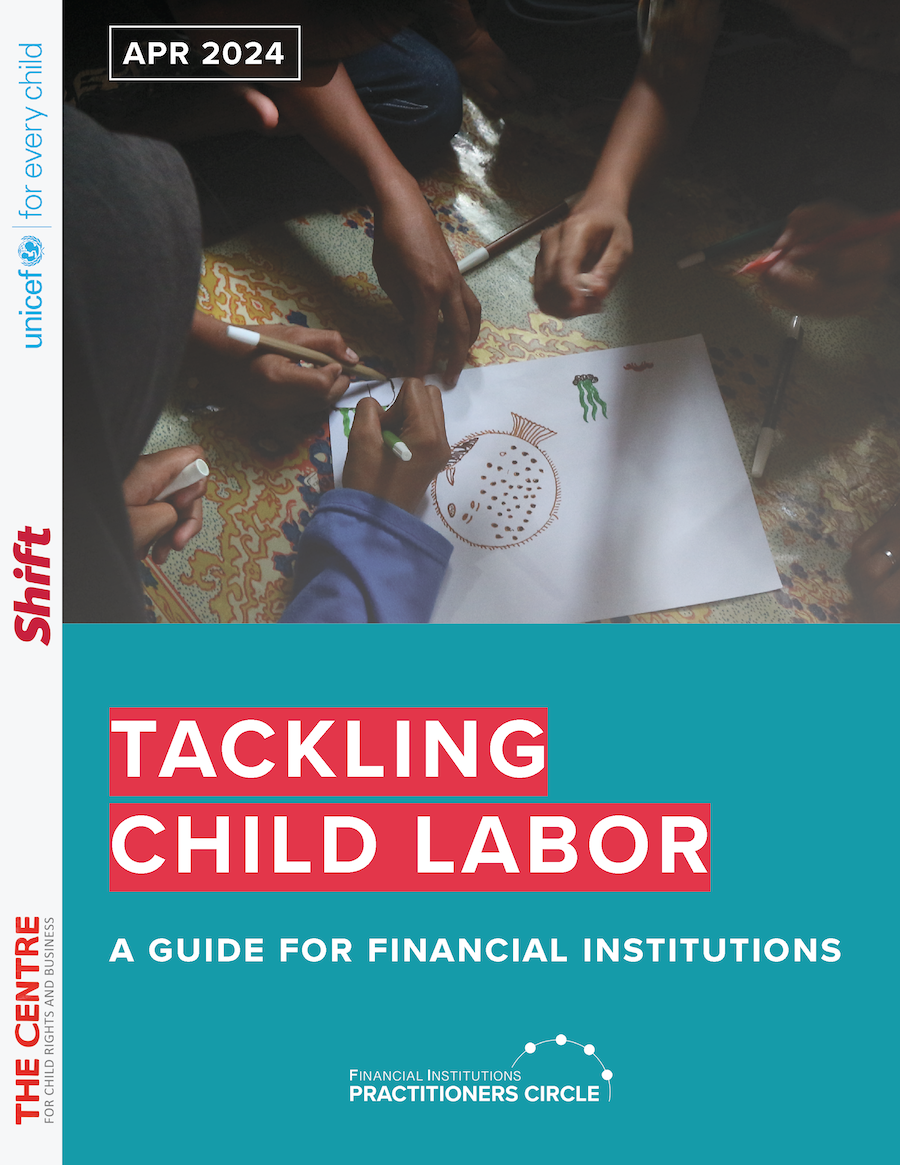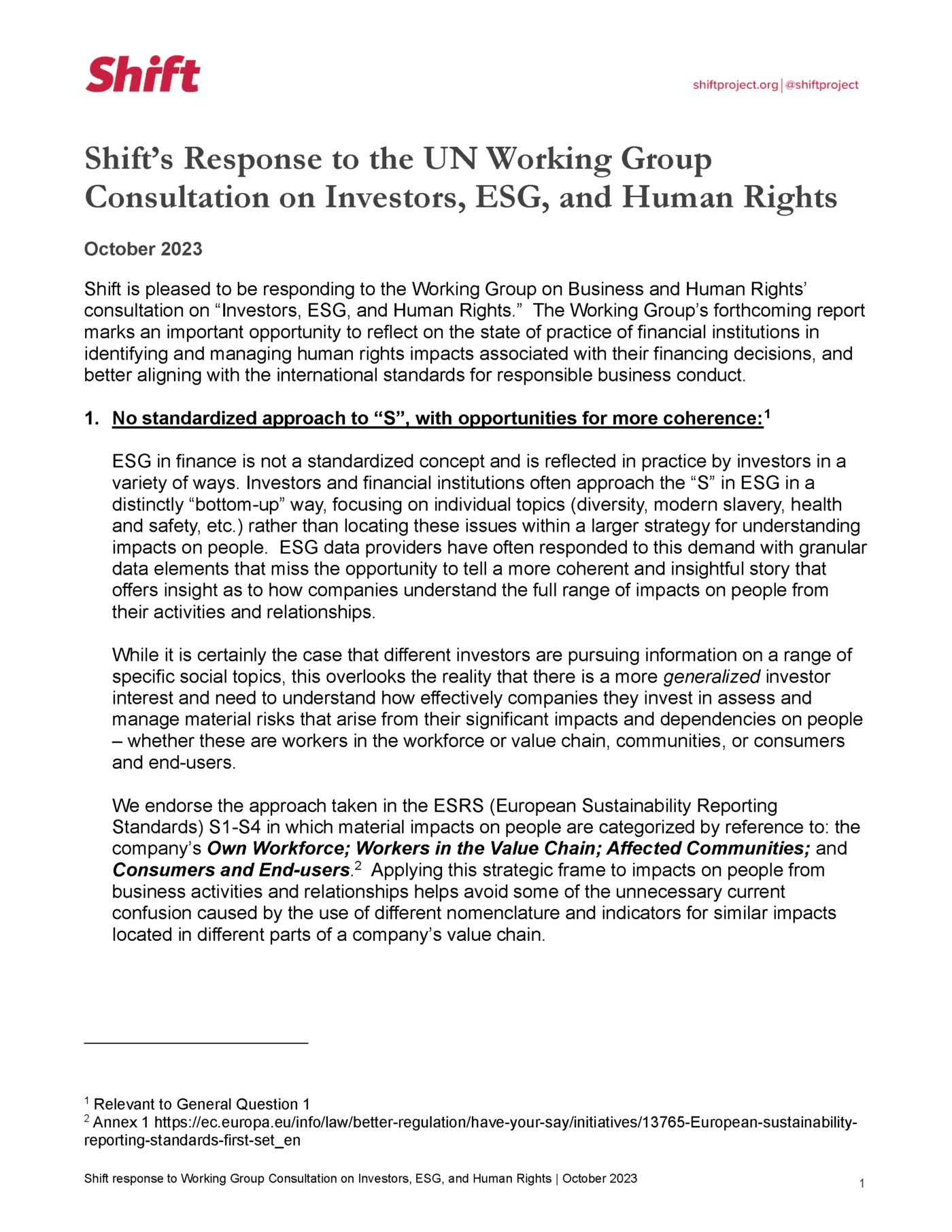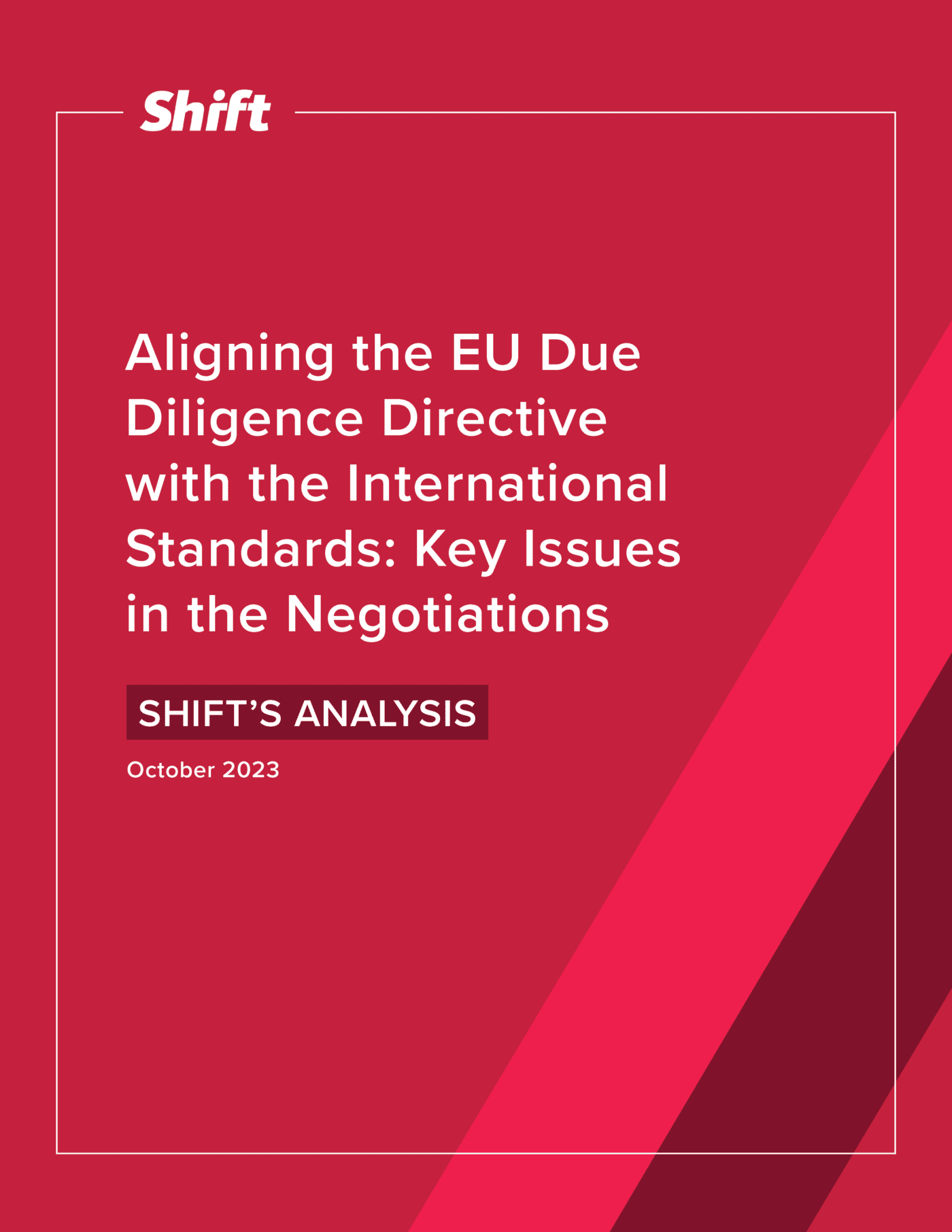Also see: Our short framework for action that any company should and can follow to contribute to the SDGs
Update: In January 2017 the Business and Sustainable Development Commission published a position paper on business’s role in sustainable development, Better Business, Better World. That position paper draws on a report authored by Shift and strongly supports our message that respect for human rights must be at the heart of any company’s efforts to contribute to the Sustainable Development Goals.
The UN Sustainable Development Goals (SDGs) are currently a big feature on global agendas — and they include a call to business to play a role in their implementation. Since the establishment of the SDGs, however, many companies have asked us what their connection is to the UN Guiding Principles on Business and Human Rights. Are the SDGs an alternative to or substitute for the Guiding Principles? Are they separate ideas with separate implementation needs?
The simple answer is no: contributing to the SDGs is neither a substitute for, nor unrelated to, implementation of the Guiding Principles. In fact, the two are interwoven in the same fabric. For business to realize its full contribution to sustainable development, it must put efforts to advance respect for human rights at the heart of its strategy.
When companies drive respect for human rights across their operations and value chains, they can have a sustained and large-scale positive impact on the lives of the people most desperately in need of development.
More clarification on the connection between the SDGs and the Guiding Principles is available in a November 2016 paper published by the Business and Sustainable Development Commission and authored by Shift. Its key points include:
- When talking about the “planet” part of sustainable development, companies focus above all on how they can reduce their negative impact on the environment, and the important positive outcomes that will generate. But when it comes to the “people” part, most companies dismiss discussions about reducing negative impacts as mere “compliance” and focus their energies on strategic philanthropy, social investment, shared value and similar efforts.
- This misses the point about respect for human rights. When companies drive respect for human rights across their operations and value chains, they can have a sustained and large-scale positive impact on the lives of the people most desperately in need of development. “Diversity and inclusion” programs address problems of discrimination, yet we recognize the positive outcomes they bring for so many groups in the workplace and broader society. It’s no different when it comes to other human rights.
- Moreover, under the Guiding Principles all companies have a responsibility to use their influence to drive respect for human rights through their value chains. When we consider the millions of people working in and affected by those global supply chains, for whom abuses of their human rights are a barrier to even basic opportunities, we start to see the true potential for how every company, large and small, can make a major contribution to sustainable development.
In September 2016, I gave a webinar to the World Business Council for Sustainable Development about the connection between the SDGs and the Guiding Principles. See my explanation below.
 By Caroline Rees
By Caroline Rees



